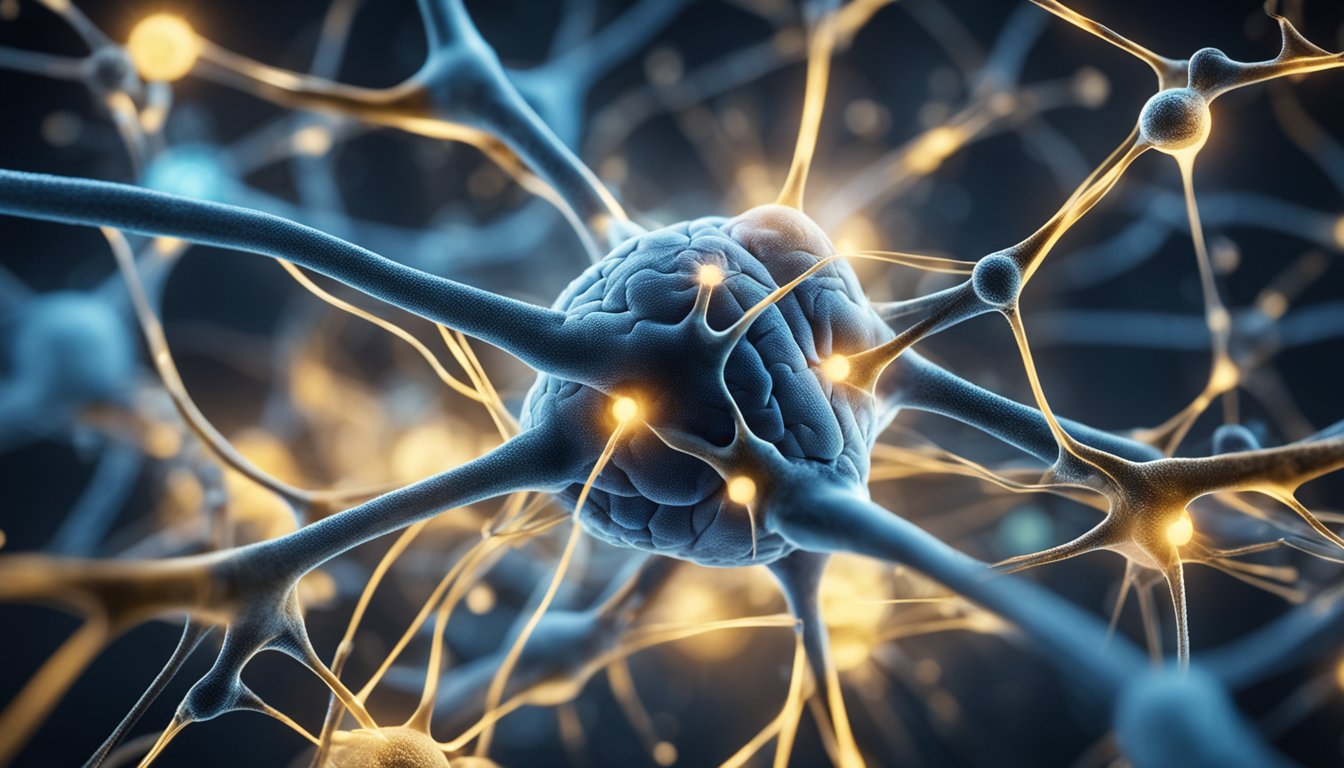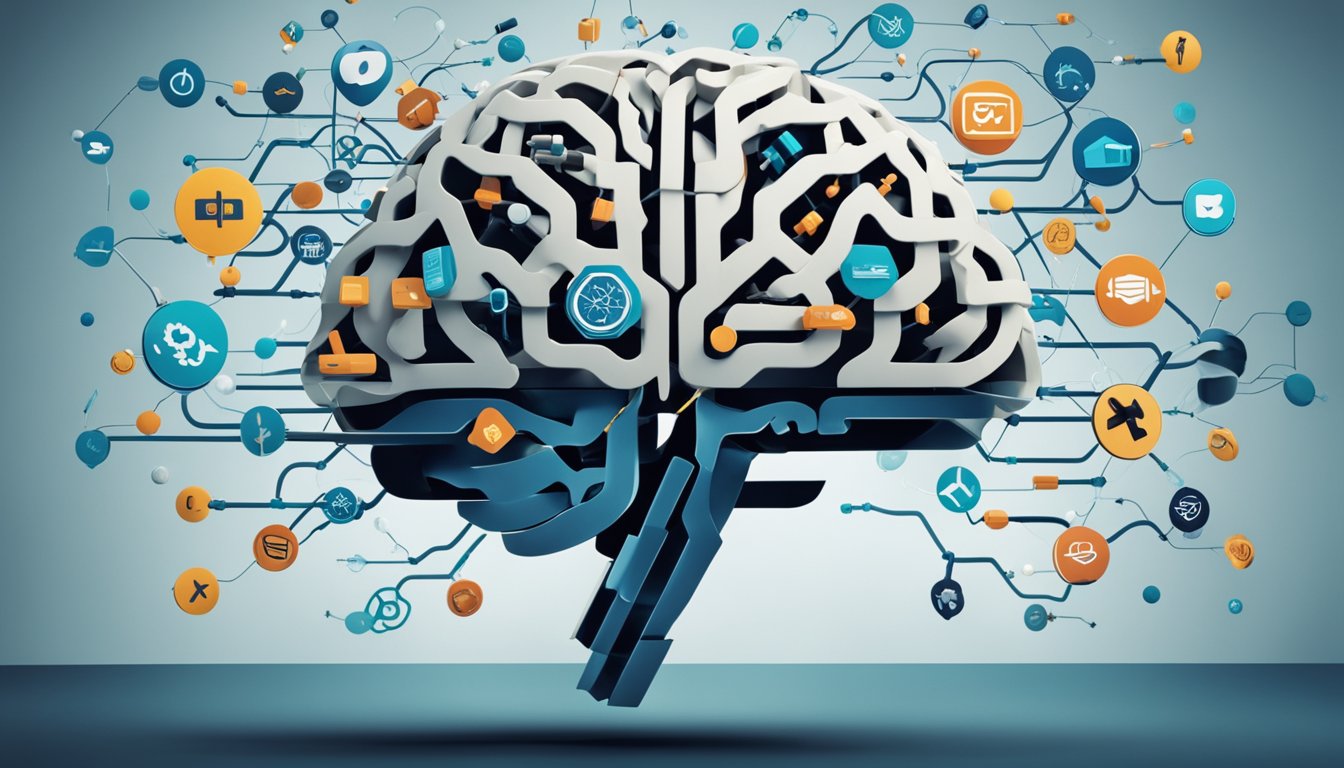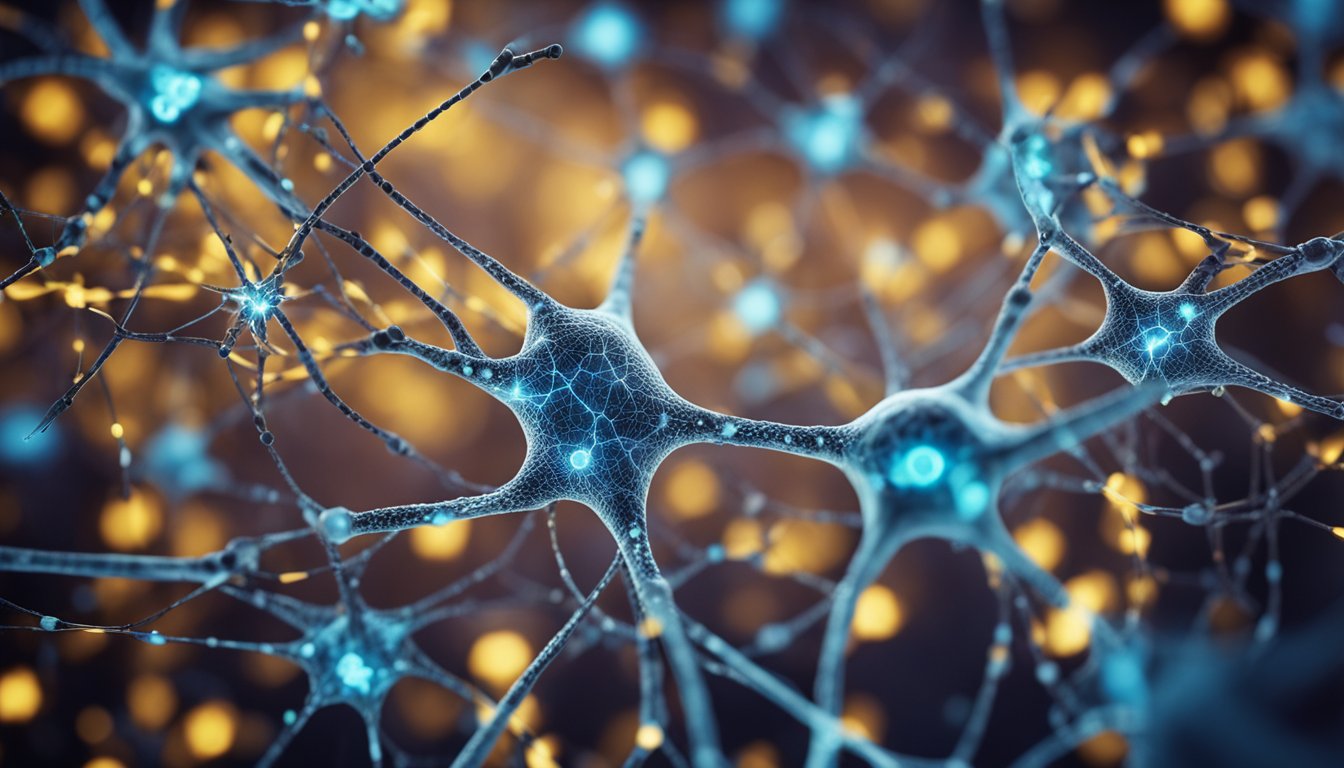Late updated: 10 Oct 2024 08:10
Written by: Ella Thompson
Understanding Addiction's Impact on Brain Chemistry: Insights into Neurotransmitter Changes
Addiction profoundly affects the intricate chemistry of our brains. It disrupts the neurological balance, making it challenging to comprehend its full impact. Understanding the neurobiology of substance use disorders reveals how addictive substances alter brain regions responsible for motivation, reward, and memory, ultimately hijacking the brain's natural processes. It's crucial to grasp how these changes perpetuate cycles of dependence, often leading to severe personal and societal consequences.

Our exploration begins by examining how drugs can mimic natural neurotransmitters. While these substances can activate neurons, they do so in a manner that is dissimilar to typical brain functions. This disruption often throws the brain's chemical balance into chaos, impacting cognitive functions and reinforcing addictive behaviours. Such modifications can severely impair an individual's ability to adopt healthier behaviour patterns.
Recognising the stages of addiction and its classification as a brain disease offers valuable insights into potential treatment strategies. We aim to present a nuanced understanding of the symptoms and identify ways to mitigate and treat substance use disorders effectively. This knowledge empowers us to approach addiction with empathy and encourages informed decisions when seeking help for those in need.
Key Takeaways
- Addiction alters brain regions linked to reward and memory.
- Substance misuse disrupts normal neuron functions.
- Understanding stages aids in effective treatment approaches.
The Neurobiology of Addiction
The neurobiology of addiction encompasses various aspects of how drugs alter brain function and structure, leading to behavioural changes. The connection between neurotransmitters, brain regions, and substance use is key to understanding addiction. We will delve into these components and their impact on brain development.
Understanding Brain Regions and Neurotransmitters
Addiction affects specific brain regions critical to reward and motivation. The prefrontal cortex, responsible for decision-making, is often compromised, affecting self-control.
Dopamine, a neurotransmitter, plays a significant role in these processes, especially in the nucleus accumbens, a focal point for reward neurocircuitry. Addictive substances like cocaine and amphetamines increase dopamine levels, creating intense pleasure and reinforcing usage. Furthermore, synaptic plasticity changes how dopamine neurons communicate, adjusting the brain’s response to drugs.
Dynamics of Substance Use and Abuse
Drug and alcohol use disrupt normal brain function and contribute to addiction through neuroplasticity. Substances such as opioids, marijuana, and nicotine, hijack the brain’s reward circuits, maintaining their usage through powerful reinforcement.
The adolescent brain is particularly vulnerable to these changes due to ongoing development. During this period, genetic factors can also influence susceptibility to substance abuse. By altering gene expression, these substances further embed themselves into the brain’s neurocircuitry, making cessation challenging and leading to long-term abuse patterns.
Impact of Addiction on Brain Development and Function
Addiction can severely impact brain development and function. Functional neuroimaging studies highlight changes in brain structure, particularly in regions linked to reward and self-regulation. This rewiring of brain circuits affects both cognitive processes and emotional regulation.
For nonhuman primates, similar addiction pathways are observed, offering insight into human vulnerability. Research underscores the importance of genetic factors in the risk of addiction, indicating a complex interplay between inherited traits and environmental influences. These changes also manifest in reduced neuroplasticity, impairing the brain’s ability to adapt and learn, further entrenching addictive behaviours.
Addiction Cycle and Treatment Approaches

Addressing addiction requires a thorough understanding of the cycle of addiction and targeted treatment strategies. Grasping the phases that people typically undergo can reveal insights into potential interventions and prevention methods focusing on both biological and psychosocial factors.
The Phases of the Addiction Cycle
The addiction cycle is characterised by three key stages: binge/intoxication, withdrawal/negative affect, and preoccupation/anticipation. During the binge/intoxication phase, users experience the rewarding effects of substances due to positive reinforcement, often triggered by impulsivity and poor inhibitory control.
The withdrawal/negative affect stage involves negative reinforcement, where avoidance of negative symptoms drives ongoing use. Emotional processing is hindered, making stress a significant risk factor.
Lastly, the preoccupation/anticipation phase reflects persistent cravings and relapse risk. Here, neuroadaptations in the brain support compulsive drug-seeking due to altered emotional and cognitive processes. Understanding these stages helps in developing targeted interventions for prevention and recovery.
Strategies for Prevention and Recovery
Prevention strategies focus on building resilience and identifying environmental and genetic risk factors. Lifestyle changes and stress management can mitigate these risks. Educational programmes aiming to improve emotional regulation and inhibitory control are essential.
For recovery, pharmacotherapy, such as smoking cessation aids, can support withdrawal management. Mental health support targeting underlying mental disorders increases success rates. Integrating therapies that address both the psychological and biological aspects of addiction can enhance recovery.
Cognitive-behavioural therapy (CBT) and motivational interviewing are effective, particularly when combined with pharmacological support. Developing strong social networks and support systems is crucial in preventing relapse and sustaining long-term recovery.
Understanding and Enhancing Treatment Efficacy
Effective addiction treatment requires a multifaceted approach. Pharmacological advancements, targeting specific therapeutic receptors, offer personalised treatment options. Neuropharmacology studies continue to unveil how substances alter brain functions, aiding in the development of targeted therapies.
Long-term success hinges on enhancing treatment efficacy through combined strategies. Addressing craving and reinforcement mechanisms reduces relapse rates. Continuous research into new therapeutic targets will likely uncover innovative treatments.
Consistency in care, addressing both biological and emotional dimensions, is critical. We must continuously refine our treatment methodologies, ensuring they are grounded in robust evidence and adapted to individual needs. Such an approach improves not just immediate outcomes, but long-term success as well.
Frequently Asked Questions

In examining the complexities of addiction, we explore how it significantly affects brain chemistry, impacting various brain regions, altering neural pathways, changing dopamine system functions, and affecting neurotransmitter levels. We also consider the brain's potential for recovery from these changes.
Which regions of the brain are impacted by addictive substances?
Addictive substances primarily affect the basal ganglia, prefrontal cortex, and extended amygdala. The basal ganglia is linked with motivation and the brain's reward system, while the prefrontal cortex controls executive functions, and the extended amygdala is involved in stress response.
What initiates alterations in brain chemistry due to addiction?
The consumption of addictive substances initiates changes by over-activating the brain's reward circuit, prompting the release of neurotransmitters like dopamine in excessive amounts. Repeated exposure alters the way neurotransmitters regulate pleasure and impulse control.
In what ways does addiction alter the neural pathways related to communication?
Addiction disrupts communication by altering neural pathways related to decision-making, impulse control, and emotional regulation. This can impair an individual's ability to organise actions and prioritise tasks as the prefrontal cortex becomes less effective.
How is the brain's dopamine system influenced by addictive behaviours?
Addictive behaviours stimulate the brain's dopamine system excessively, increasing dopamine levels beyond normal. This unnatural surge reinforces the behaviour, creating a cycle where more substance is required to achieve the same pleasure, leading to dependency.
Can the brain recover from the changes induced by addiction?
Recovery is possible, although it varies by individual. Neuroplasticity, the brain's ability to reorganise and form new neural connections, plays a vital role. With time, therapy, and abstinence, the brain can regain some functionality, although full recovery might be challenging.
What are the long-term effects of addiction on neurotransmitter levels?
Long-term addiction can result in persistent imbalances in neurotransmitter levels, impacting mood, stress response, and cognitive abilities. Such changes can contribute to ongoing mental health issues, affecting emotional stability and increasing vulnerability to depression and anxiety.
